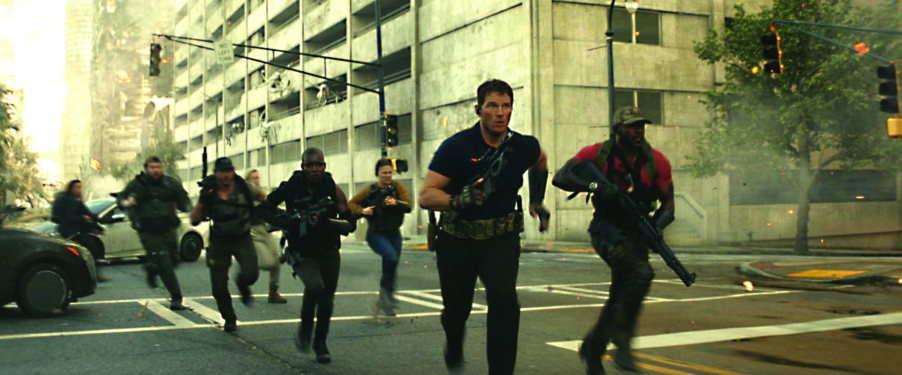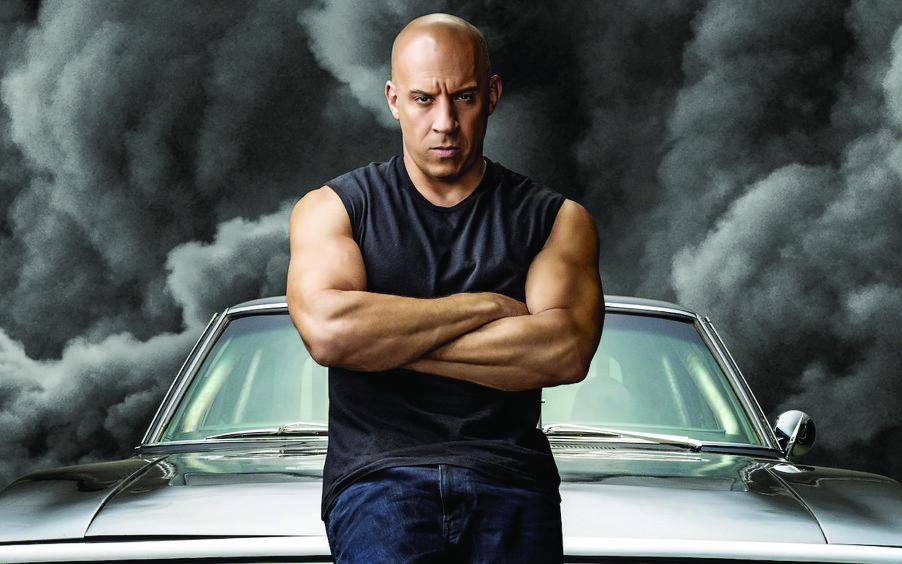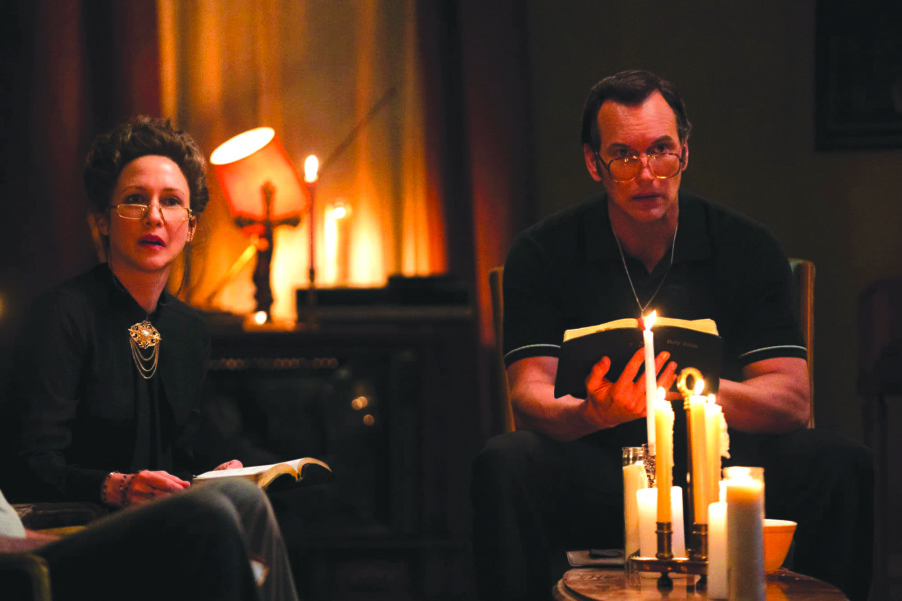Black Widow (PG-13)
The Avengers’ Black Widow finally gets her stand-alone, sorta-origin movie with Black Widow, the first movie to return to the Marvel Cinematic Universe since 2019’s Spider-Man: Far From Home.
You don’t have to be a total MCU completist to enjoy this movie but it does help when it comes to orienting this movie in the MCU timeline. If you’ve seen Avengers: Endgame and are wondering how Black Widow is having any kind of adventure, stand-alone or otherwise, this movie’s “present” quickly sets up that we are immediately post-Captain America: Civil War and a while pre Avengers: Infinity War. There are actually five movies (Dr. Strange, Guardians of the Galaxy Vol. 2, Spider-Man: Homecoming, Thor Ragnarok and Black Panther) that come between those two Avengers-heavy films and you could easily imagine a world in which Black Widow was also sandwiched in there. It could have given more oomph to her Infinity War and Endgame character arc and helped make Scarlett Johansson’s Natasha Romanoff/Black Widow feel like a more fully rounded member of the Avengers and not just an “and also.”
Here, we see not the beginnings of Natasha, who we’ve learned previously was an assassin trained by some kind of quasi-governmental (like S.H.I.E.L.D.?) Russian spy entity, but the origin story of her sense of the importance of family. In 1995 Ohio, a tween/young-teen Natasha (Ever Anderson) is living a boring suburban life with her 6-year-old “sister” Yelena (Violet McGraw) and their “mom” Melina (Rachel Weisz) and “dad” Alexei (David Harbour). But, as we realize when the family suddenly has to flee, their boring suburban life was actually a boring suburban cover and all of these unrelated people are secret agents.
Years go by and Natasha becomes the S.H.I.E.L.D. agent turned Avenger turned anti-Sokovia-Accord fugitive we know from MCU movies past. Yelena (Florence Pugh) meanwhile has grown up to become what Natasha once was, a Widow who still works for the shadowy Russian organization mostly as an expert assassin. We see her chase a target who has been marked for assassination and who has a case Yelena is meant to retrieve. But as she’s getting the case, the target, who is herself a former Widow, sprays Yelena with a red mist. Yelena and all the Widows are acting under the influence of some kind of mind control and the spray has released Yelena from it.
The two women reunite and decide to work together to bring down Dreykov (Ray Winstone), the man who runs the Red Room, the organization that turns vulnerable girls, like Natasha and Yelena, into super soldiers (the ones who survive training) and continues to control not only all their life choices but their minds.
Helping women regain their agency — someone smarter than me can write a thesis about how this mission fits in the MCU worldview and what it says about the MCU’s attempt to course-correct from putting its Strong Female Characters on the sidelines until, like, 2019 and Captain Marvel. But I enjoyed it. Enjoyed it a lot, actually. I feel like this is a really solid examination of this character we didn’t get to know as well in previous movies. It makes sense with what we know about Natasha, it helps us understand her motivations (all the desire to atone and importance of family that was part of her arc in previous movies) and it actually gives more depth to how her story plays out in Endgame.
Johansson of course does a good job with what she’s given here. I say of course because she’s been playing this character since 2010’s Iron Man 2. But she’s also able to bring more to Natasha, more than that goofy “lot of red on my ledger” speech from The Avengers and her sorta romance with Hulk. I wish we could see more of this Black Widow (I mean, I guess we could, conceivably, with a post-this-pre-that sequel, Fast & Furious style).
I also hope there’s a way to see Pugh’s Yelena again. Pugh matches Johansson’s energy and creates an intriguing character of her own. The women have solid sisterly and buddies-on-a-mission energy.
And there is a post-credits scene (of course there is) that suggests how this slice of the MCU can continue (also, if you haven’t caught up on all the Disney+ Marvel TV shows, the post-credits scene might be the incentive you need).
Black Widow is one of the better examples of Marvel’s ability to balance sentiment, humor and action; fill in a narrative hole, and create something that is an overall good time. B+
Rated PG-13 for intense sequences of violence/action, some language and thematic material, according to the MPA on filmratings.com. Directed by Cate Shortland with a screenplay by Eric Pearson, Black Widow is two hours and 13 minutes long and distributed by Walt Disney Studios in theaters and on Disney+ for $29.99. It will be available on Disney+ without the extra fee on Oct 6.
Featured photo: Black Widow
FILM
Venues
Bank of NH Stage in Concord
16 S. Main St., Concord
225-1111, banknhstage.com
Capitol Center for the Arts
44 S. Main St., Concord
225-1111, ccanh.com
Chunky’s Cinema Pub
707 Huse Road, Manchester;
151 Coliseum Ave., Nashua;
150 Bridge St., Pelham, chunkys.com
O’neil Cinemas at Brickyard Square
24 Calef Highway, Epping
679-3529, oneilcinemas.com
Red River Theatres
11 S. Main St., Concord
224-4600, redrivertheatres.org
Wilton Town Hall Theatre
40 Main St., Wilton
wiltontownhalltheatre.com, 654-3456
Shows
• Midsummer Silent Film Comedy with Sherlock Jr. (1924) and Our Hospitality (1923), both silent films starring Buster Keaton, on Thursday, July 15, at 7:30 p.m. at the Rex in Manchester, featuring live musical accompaniment by Jeff Rapsis. Admission costs $10.
• Disney Villains 21+ trivia night at Chunky’s in Manchester on Thursday, July 15, at 7:30 p.m. Admission costs $5, which is a food voucher.
• Road Runner: A Film About Anthony Bourdain (R, 2021) screening at Red River Theatres in Concord Friday, July 16, through Sunday, July 18, at 12:30 p.m., 3:30 p.m. & 6:30 p.m.
• Pig (R, 2021) screening at Red River Theatres in Concord Friday, July 16, through Sunday, July 18, at 1:30 p.m., 4:30 p.m. & 7:30 p.m.
• Summer of Soul (…Or When the Revolution Could Not Be Televised)(PG-13, 2021) screening at Red River Theatres in Concord Friday, July 16, through Sunday, July 18, at 4 & 7 p.m.
• Dream Horse (PG, 2021) screening at Red River Theatres in Concord Friday, July 16, through Sunday, July 18, at 1 p.m.
• Space Jam: A New Legacy (PG, 2021) a sensory friendly flix screening, with sound lowered and lights up, on Saturday, July 17, 10 a.m. at O’neil Cinema in Epping.
• Theater Candy Bingo family-friendly game at Chunky’s in Manchester, Nashua and Pelham on Sunday, July 18, at 6:30 p.m. Admission costs $4.99 plus one theater candy.
• Elf (PG, 2003) at the O’neil Cinema in Epping on Monday, July 19, and Wednesday, July 21, at 10 a.m. as part of the summer kids series. Tickets to the screening cost $2 for kids ages 11 and under and $3 for ages 13 and up. A $5 popcorn and drink combo is also for sale.
• Hotel Transylvania (PG, 2012) a “Little Lunch Date” screening at Chunky’s in Manchester, Nashua & Pelham on Wednesday, July 21, at 11:30 a.m. Reserve tickets in advance with $5 food vouchers. The screening is kid-friendly, with lights dimmed slightly.
• Grease(PG, 1978) a senior showing on Thursday, July 22, at 11:30 a.m. at Chunky’s in Manchester, Nashua and Pelham. Free but reserve tickets in advance with $5 food vouchers.
• 21+ Scratch Ticket Bingo on Thursday, July 22, at 7 p.m. at Chunky’s in Manchester and Nashua. Admission costs $10.
• The Sandlot 21+ trivia night at Chunky’s in Manchester on Thursday, July 22, at 7:30 p.m. Admission is a $5 food voucher.
• 21+ “Life’s a DRAG” Show on Saturday, July 24, at 9 p.m. at Chunky’s in Manchester. Tickets cost $25.
• Branded a Bandit (1924) andThe Iron Rider (1926) silent film Westerns with live musical accompaniment by Jeff Rapsis, on Sunday, July 25, 2 p.m., at Wilton Town Hall Theatres. Screenings are free but a $10 donation per person is suggested.






